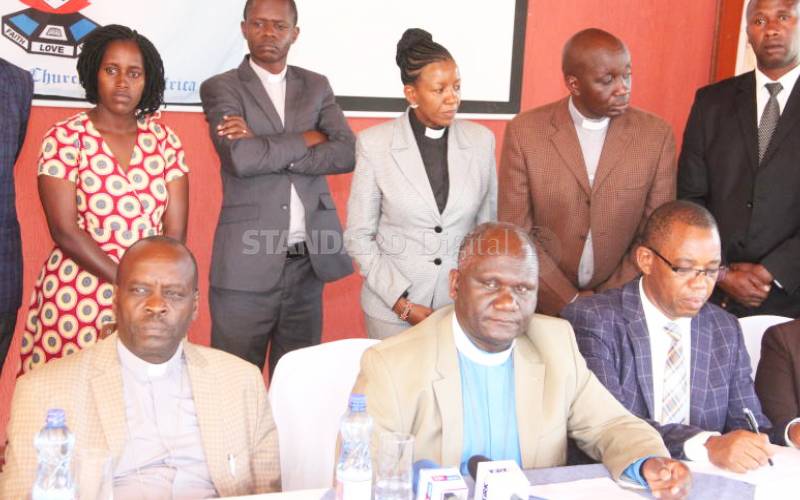×
The Standard e-Paper
Home To Bold Columnists

Presbyterian Church of East Africa moderator Julius Mwamba (centre) with other leaders of the church, address the press at the church headquarters in South C, Nairobi. [Edward Kiplimo, Standard]
President Uhuru Kenyatta has declared Saturday, March 21, a national day for prayer.